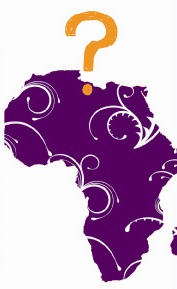
In 1992 Jacques Derrida reminded the global university community that, given the increasing instrumentalisation of knowledge, the primary meaning of “our responsibility as academics” lies in theorising the paradoxes that constitute the contemporary university as institution and the politics of knowledge production in it.
For Africans the most fundamental paradox is probably the tension between the need to somehow consolidate the study of Africa in disciplinary terms (e.g. advance the study of “African Philosophy”) while the very disciplinary organisation of knowledge is increasingly being eroded by multi-disciplinarity and the realities of globalisation.
Thinking Africa, launched in 2010 by the Department of Political and International Studies, was in part conceived as response to three questions that present different permutations of this paradox.
Firstly, What is Africa? As James Ferguson points out, Africa is such a huge and diverse continent that it is questionable whether we can meaningfully speak of it as a ‘place’. That said, to refuse to speak of Africa and to focus rather on some small sub-field will marginalise us from global conversation on and about Africa(ns).
Secondly, Who is the study of Africa for? At a 1969 meeting of the US-based African Studies Association a group of scholars (the “Black Caucus”) shook the African Studies establishment by insisting that the primary concern of African Studies needed to be the interests and concerns of black people in Africa rather than theoretical debates irrelevant to the concerns of most Africans.
Adebayo Olukoshi, too, has criticised African Studies for focusing on ‘decoding’ Africans for the rest of the world rather than explaining the African world to Africans.
A third, related question asks, What is the study of Africa for? Some approach the study of Africa as if its main aim were to solve development problems, insisting that more reflective, broad-ranging studies constitute ‘fiddling while Rome burns’.
Others object that African Studies should not be dictated to by development policy but should rather focus on increasing our knowledge and our understanding with broader, more general aims in mind.
Many have argued that Africa ought not to be treated as a laboratory where theories and models developed from the study of other parts of the world can simply be applied, nor should Africa be treated as if its difficulties and triumphs are somehow exceptional and specific only to Africa. Rather, as Thandika Mkandawire has argued, Africa ought to be considered ‘an important site for the performance of the human drama’.
We take this to mean that research on Africa should contribute both to our understanding of Africa and to our understanding of the broader human condition. The position of Thinking Africa is that there is no either/or here. We do not have to choose between “solving problems” and generating theory. With our research projects we systematically and thematically address what seems most urgent while doing so in a manner that generates original and exciting theory.
From a teaching perspective, Thinking Africa aims to promote teaching-led research in which post-graduate students are encouraged to join academics in a collaborative, critical and collegial series of research projects.
The Political and International Studies will formally launch the Thinking Africa project in July 2011 with an exciting programme that will be repeated annually: a public lecture, followed by an international colloquium and a week-long post-graduate winter school. The theme for 2011 is “Fanon: 50 Years later” and some of the events will be integrated into the programme of the National Arts Festival.
For the full version of this article click here
For more information on Thinking Africa click here
